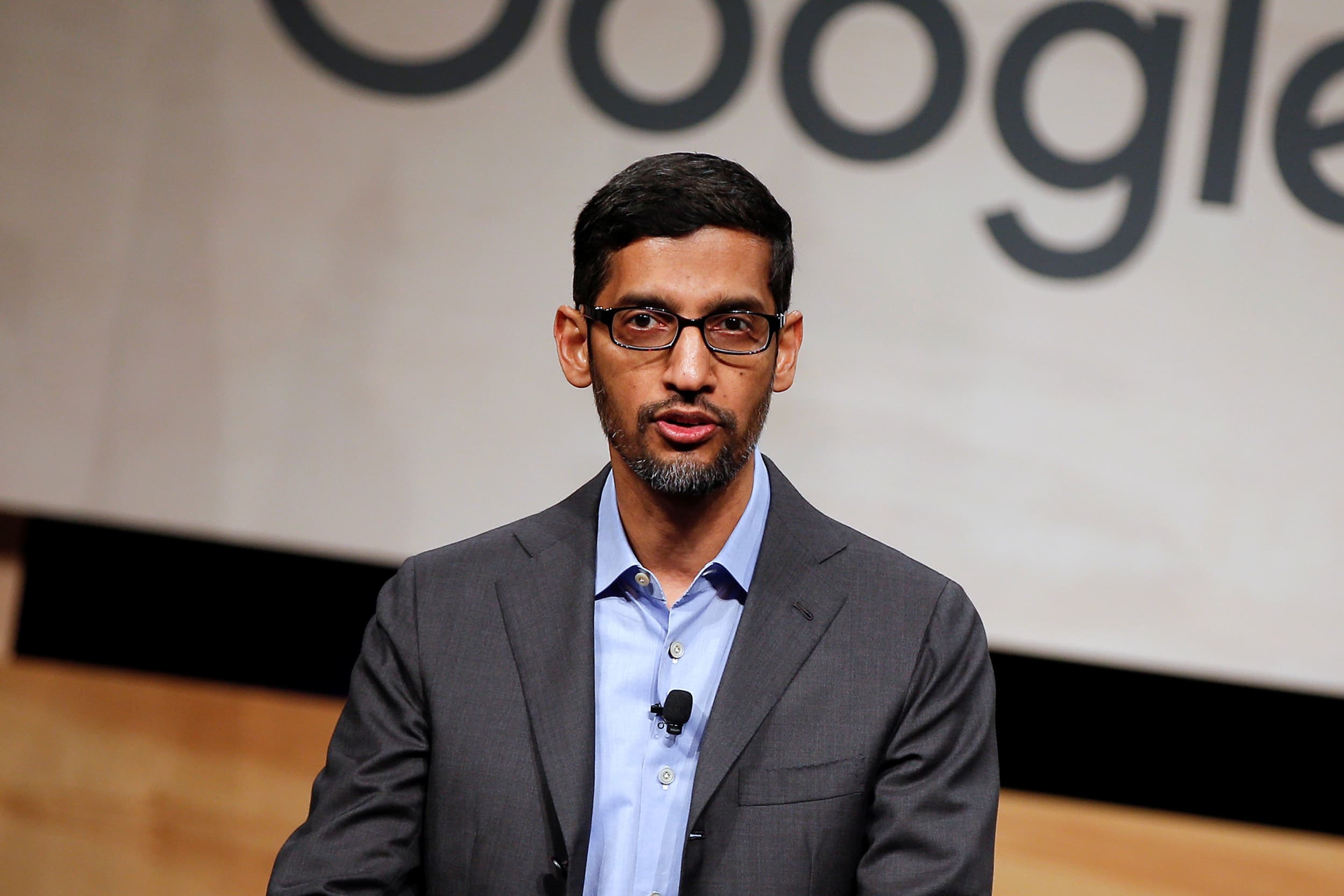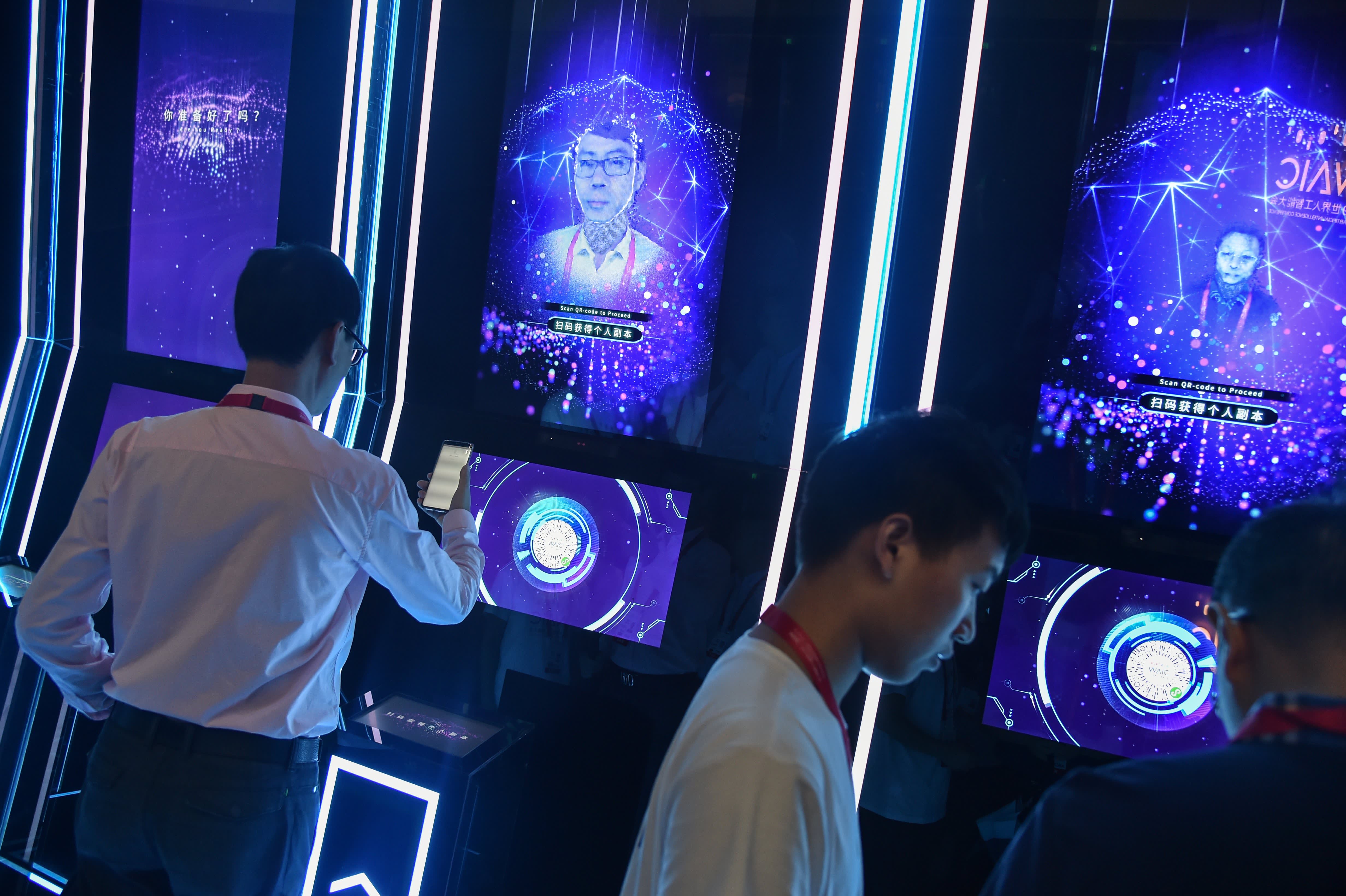House leaders slam Google for hiring ex-Trump administration official who worked on immigration

Google CEO Sundar Pichai speaks during signing ceremony committing Google to help expand information technology education at El Centro College in Dallas, Texas, October 3, 2019.
Brandon Wade | Reuters
Democratic congressional leaders from the Hispanic, Black and Asian Pacific American caucuses scolded Google CEO Sundar Pichai for the recent hiring of a former Trump administration official who had supported the Muslim ban.
In a letter dated Nov. 19, the lawmakers expressed concern over Google's hiring of Miles Taylor, who served as chief of staff for Kirstjen Nielsen, the former secretary of Homeland Security. Taylor joined Google recently to work on government affairs and national security issues.
"We are deeply troubled with Google's decision to hire someone from the Trump Administration that has defended the very same cruel DHS policies Google senior leadership has previously announced," the letter said. It was signed by Joaquin Castro, chair of the Congressional Hispanic Caucus, as well as Karen Bass, head of the Congressional Black Caucus, and Judy Chu, chair of the Asian Pacific American Caucus.
Trump's actions have been "devastating to refugees and immigrant families," the House members wrote. "During his time with DHS, Miles Taylor undoubtedly demonstrated his support for the Trump Administration's immigration policies."
Congressional Asian Pacific American Caucus Chair, U.S. Representative Judy Chu (D-CA), speaks on the third day of the Democratic National Convention in Philadelphia, July 27, 2016.
Mike Segar | Reuters
The letter comes as Google faces increased scrutiny by lawmakers, regulators and among its own employees for business practices, government contracts and controversial decisions made by leadership. In August, more than 1,000 Google employees signed a petition, demanding Google abandon bids or potential bids with U.S. Customs and Border Protection contract.
Employees also expressed concern about Taylor at recent all-hands meetings, where executives defended his hiring and downplayed his involvement in DHS policies.
In response to a request for comment, a Google spokesperson pointed to comments made a few weeks ago by Karan Bhatia, vice president for government affairs, explaining that Taylor's expertise is in counterterrorism and national security, and that he will not be involved in immigration issues.
The letter from House leaders berated Pichai and Google co-founder Sergey Brin, citing reports from The Washington Post and Buzzfeed about Taylor's role in the Trump administration.
"This recent company hire appears to contradict Google's own moral and ethical values and completely disregards the concerns expressed by many of your employees and customers that value immigrants and human rights," the letter said.
The lawmakers pointed to a tweet from Pichai, opposing family separation at the border.
"The stories and images of families being separated at the border are gut-wrenching," Pichai wrote. "Urging our government to work together to find a better, more humane way that is reflective of our values as a nation #keepfamiliestogether."
Google is not alone among tech companies in employing former conservative administration officials. Facebook hired former George W. Bush aide Joel Kaplan in 2011, which The Wall Street Journal reported was part of a larger effort to bring more diverse viewpoints into its executive ranks.
House members wrote in the letter to Pichai that, "We find it alarming when companies choose to reward and hire individuals that have played active roles in implementing cruel policies that target and hurt the communities we represent and Google is no exception."
While big tech companies tend to skew to the left in terms of political contributions and support for candidates and causes, liberal lawmakers have attacked the same companies for a lack of diversity among their employee base and for the ways their technology is used.
At an October hearing, Rep. Joyce Beatty, D-Ohio, grilled Facebook CEO Mark Zuckerberg about the company's civil rights audit and alleged housing discrimination enabled through its ads service. Several Democratic lawmakers wrote to Amazon CEO Jeff Bezos last year, expressing concern about reports that the company was promoting its facial recognition technology to U.S. Immigration and Customs Enforcement.
WATCH: How to download everything Google knows about you
Reaed More




